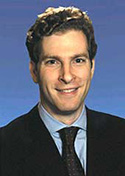CFR.org | Japan’s New Leader Faces Old Problems with China and South Korea
/Shinzo Abe took the helm from Junichiro Koizumi in September as Japanese prime minister during a period of chilling relations with Beijing and Seoul, due to China and South Korea’s memory of brutal Japanese aggression in the region during the decades leading up to Hiroshima. Koizumi's official visits to the Yasukuni Shrine, which honors several Class A war criminals along with about 2.5 million war casualties, had revived memories of Japan's World War Two-era brutalities in China and South Korea. In recent months, then–cabinet chief Abe’s emergence as the favored candidate for the premiership by the governing Liberal Democratic Party did little to calm Chinese and South Korean fears. The right-leaning leader has been unapologetic about his country’s history, and he supported the revision of Japan’s pacifist constitution. Also, he has not concealed his affection for his deceased grandfather Nobusuke Kishi, a Japanese prime minister after the war, in spite of a war crime indictment. But experts say that the North Korean nuclear test announcement, which came within weeks of Abe taking office, presented the three countries with an opportunity to forge common ground in handling the crisis. Abe's first official visits, to Seoul and Beijing, prompted hopes that he would bring a new commitment to improving relations with Japan's important neighbors.

